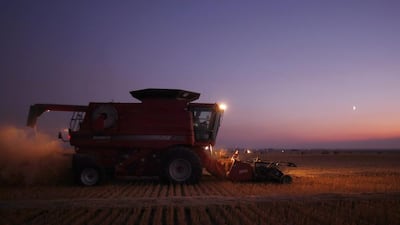World food prices rose slightly in February, boosted in particular by cereals, the United Nations food agency said on Thursday.
The UN Food and Agriculture Organisation’s (FAO) food price index, which measures monthly changes for a basket of cereals, oilseeds, dairy products, meat and sugar, averaged 175.5 points in February, was up 0.5 per cent on January levels.
The increase pushed food prices on international markets to their highest level since February 2015. They were some 17.2 per cent above their levels in the same month last year.
Global cereals output is now expected to reach 2.6 billion tonnes in the 2016 season, up 0.3 per cent on previous forecasts, the FAO said.
The FAO said its first forecast of global wheat production in 2017 stood at 744.5 million tonnes, a 1.8 per cent decline from the 2016 record level but above the last five-year average.
* Reuters
business@thenational.ae
Follow The National's Business section on Twitter

